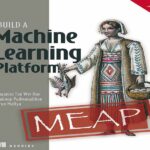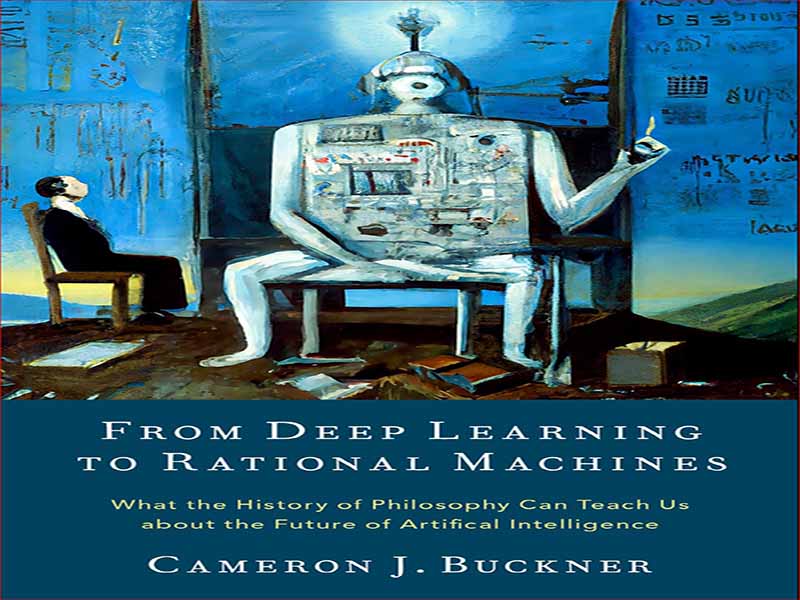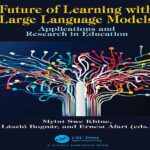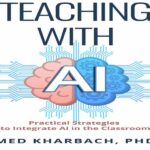- عنوان کتاب: From Deep Learning to Rational Machines
- نویسنده: CAMERON J. BUCKNER
- حوزه: یادگیری عمیق
- سال انتشار: 2024
- تعداد صفحه: 443
- زبان اصلی: انگلیسی
- نوع فایل: pdf
- حجم فایل: 9.94 مگابایت
تلاش برای نوشتن کتابی در مورد مفاهیم فلسفی یادگیری عمیق امروزه کمی شبیه تلاش برای زین کردن یک موستانگ با تاخت کامل است. برنامه ریزی این کتاب را در سال 2015 شروع کردم، زمانی که مشخص شد شبکه های عصبی عمیق به طور اساسی بازی را در بینایی کامپیوتر تغییر داده اند. علیرغم علاقه حرفهای به هوش مصنوعی (AI) و مفاهیم فلسفی شبکههای عصبی مصنوعی در بیشتر دوران بزرگسالیام، تصور میکردم که هنوز دهها سال با دستیابی به درجه موفقیتی که AlexNet و جانشینان آن در برچسبگذاری تصویر به دست آوردند فاصله داریم. وظایف سپس درست زمانی که احساس می کردم اصول اساسی موفقیت شبکه های عصبی کانولوشنال عمیق مانند AlexNet را در بینایی کامپیوتری درک می کنم، متوجه شدم که چندین سال از یک شبکه عصبی جدید کاملا متفاوت و به همان اندازه هیجان انگیز عقب مانده بودم. معماری، شبکه های متخاصم مولد، که به درجات مشابهی از عملکرد در وظایف تولید تصویر می رسیدند. این احساس معوقه دائمی دوباره با افزایش ترانسفورماتورها در کارهای زبانی در سال 2018 تکرار شد. حداقل برای من روشن شد که یادگیری عمیق بسیار بیشتر از یک تسویه حساب یک ترفند است، که این کار اسباب کار خواهد بود. هوش مصنوعی برای سال های آینده اگرچه امروزه اهمیت یادگیری عمیق به طور گسترده مورد توجه قرار گرفته است، به نظر می رسد بحث در مورد مفاهیم فلسفی آن همچنان بین افراط های غیرقابل قبول در دام افتاده است – یا عوامل یادگیری عمیق در شرف دستیابی به تکینگی در یک ابر هوش جهانی هستند که خالقان انسانی ضعیف خود را پشت سر خواهند گذاشت، یا آنها چیزی بیش از انبوهی از عملیات های آماری درهم و برهم با ارتباط کمی با هوش واقعی نیستند. به همین ترتیب، پیشبینیها در مورد چشمانداز آینده یادگیری عمیق با تفسیرهای سادهگرایانه از مواضع فلسفی که به نظر میرسد الهامبخش چنین اشتیاق یا بدبینی هستند، به نظر میرسید. علاقه مندان به یادگیری عمیق مرتباً ردای تجربه گرایی را به تن می کنند و این اعتقاد ارسطو را تکرار می کند که دانش انتزاعی را می توان از تجربه حسی به دست آورد، در حالی که منتقدان یادگیری عمیق از استدلال بومی گرایانه افلاطون حمایت می کنند که منبع دانش انتزاعی را باید در یک موهبت ذهنی ذاتی یافت. نام فیلسوفان مشهور اروپای غربی مانند لاک، دکارت، لایب نیتس، هیوم، برکلی و کانت به طور مرتب در آثار دانشمندان کامپیوتر، روانشناسان و دانشمندان علوم اعصاب ظاهر می شود که به دنبال درک مفاهیم یادگیری عمیق هستند. با این حال، متأسفانه، دیدگاههای ظریف و ظریف این فیلسوفان اغلب در قالبهای سادهای قرار میگیرند تا پیشبینیهای افراطی ارائه کنند، که اغلب منجر به گفتگوهای بینرشتهای بالقوه مثمر ثمری میشود که به سرخوردگی و صحبت از کنار یکدیگر ختم میشوند. در واقع، من فکر میکنم با استفاده از آثار تأثیرگذار از تاریخ فلسفه برای زمینهسازی ساختار و دستاوردهای مدیریت پیچیده معماریهای شبکه یادگیری عمیق، میتوان چیزهای زیادی به دست آورد. فیلسوفان ممکن است ببینند که چگونه این معماری ها برخی از جاه طلبانه ترین حدس و گمان های تجربه گرایان در مورد عملکرد ذهن را اجرا می کنند، و دانشمندان می توانند از نقشه راه جامع تجربه گرایی از ذهن منطقی بهره ببرند – مملو از مجموعه ای غنی از اهداف، چالش ها و پست های راهنما که می تواند توضیح دهد که چه چیزی مشخص است. دستاوردها و شکست ها در یادگیری عمیق حاکی از ماهیت عقلانیت یا هوش است. متأسفانه، این مزایا را میتوان تنها با بالا زدن آستینها و وارد شدن به نقطه عطف مواضع فلسفی و مدلهای محاسباتی و با کنار گذاشتن افراطهای سادهاندیشانه برای تداوم ظریفتری از دیدگاهها درباره منشأ عقلانیت و دانش انتزاعی به دست آورد.
Trying to write a book about the philosophical implications of deep learning today is a bit like trying to saddle a mustang at full gallop. I started planning this book back in 2015, when it became clear that deep neural networks had fundamentally changed the game in computer vision. Despite having a professional interest in artificial intelligence (AI) and the philosophical implications of artificial neural networks for most of my adult life, I had assumed that we were still decades away from achieving the degree of success that AlexNet and its successors delivered on image labeling tasks. Then just as I’d begun to feel like I understood the basic principles that account for the success of deep convolutional neural networks like AlexNet on computer vision, I realized that I was already several years behind on an entirely different and equally exciting new neural network architecture, generative adversarial networks, that were reaching similarly astounding degrees of performance on image generation tasks. This sense of being perpetually in arrears recurred yet again with the ascendency of transformers on language tasks in 2018. It became clear to me, at least, that deep learning was much more than a one-trick pony, that it would be the workhorse of AI for years to come. Though the importance of deep learning is today widely appreciated, the debate over its philosophical implications still seems trapped between implausible extremes—either deep learning agents are about to achieve singularity into a world-spanning superintelligence that will leave behind its puny human creators, or they are nothing more than enormous, ramshackle piles of statistical operations with little relevance to genuine intelligence. Relatedly, prognostications about deep learning’s future prospects seemed hobbled by simplistic interpretations of philosophical positions that are seen to inspire such enthusiasm or skepticism. Enthusiasts of deep learning regularly don the mantle of empiricism, echoing Aristotle’s conviction that abstract knowledge can be derived from sensory experience, whereas deep learning’s critics favor Plato’s nativist contention that the source of abstract knowledge is to be found in an innate mental endowment. The names of well-known philosophers of Western Europe like Locke, Descartes, Leibniz, Hume, Berkeley, and Kant regularly appear in works by computer scientists, psychologists, and neuroscientists seeking to understand deep learning’s implications. Unfortunately, however, the subtle and elegant views of these philosophers are often pressed into simplistic molds to serve extreme predictions, often leading potentially fruitful interdisciplinary dialogue to end in frustration and talking past one another. In fact, I think a great deal is to be gained by using influential works from the history of philosophy to contextualize the structure and achievements of deep learning’s complex menagerie of network architectures. Philosophers might see how these architectures implement some of the empiricists’ most ambitious speculations about the mind’s operations, and scientists can benefit from empiricism’s comprehensive roadmap of the rational mind—replete with a rich set of goals, challenges, and guideposts that can explain what specific achievements and failures in deep learning imply about the nature of rationality or intelligence. Unfortunately, these benefits can only be obtained by rolling up our sleeves and getting into the nitty gritty of both the philosophical positions and the computational models—and by setting aside simplistic extremes for a subtler continuum of views on the origins of rationality and abstract knowledge.
این کتاب را میتوانید از لینک زیر بصورت رایگان دانلود کنید:
Download: From Deep Learning to Rational Machines



































نظرات کاربران